Qatar 2022 has been a tournament about more than just football. The Game columnist Andy Murray reflects on his personal experiences - the good, the bad and the Infantino - as the World Cup approaches its climax.
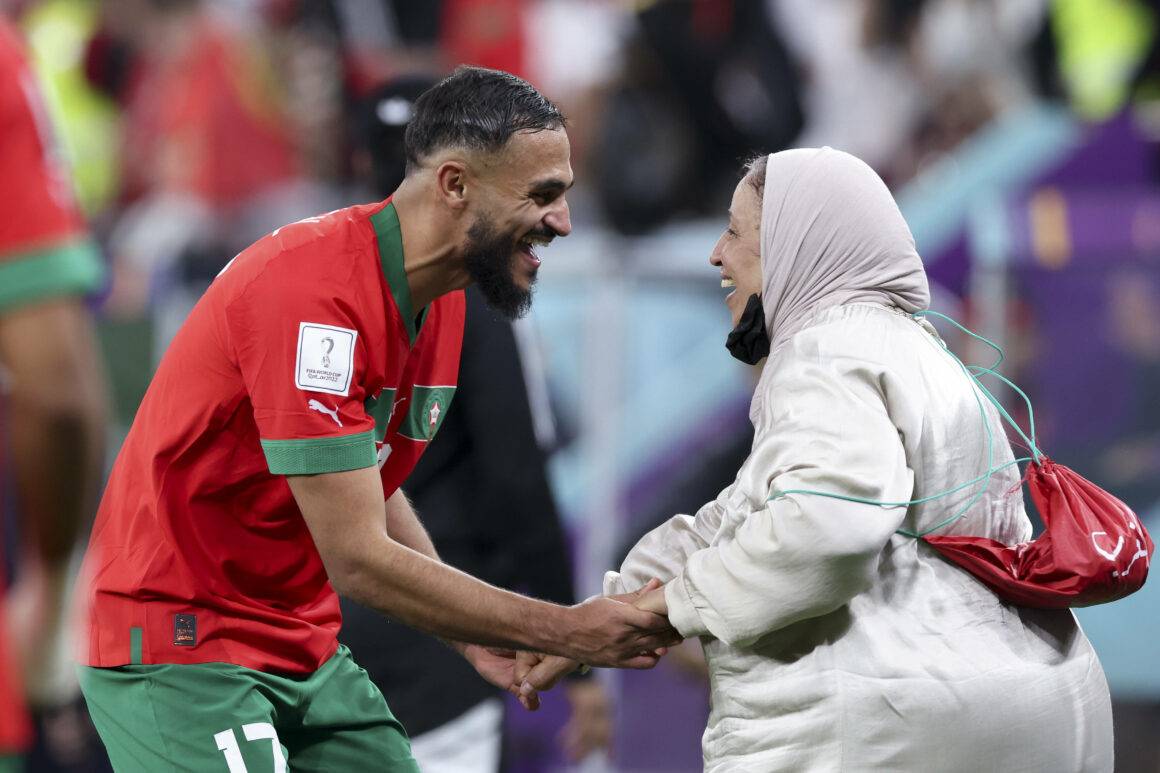
World Cup 2022: The untold stories by Andy Murray
Someone has to win the World Cup. That’s the nature of elite sport – winners forever feted as self-evidential heroes predetermined to succeed, while losers must deal with their own private sorrow in a way they may never fully recover. Or be allowed to recover.
Yet the real point of the World Cup has never been just about the winners. On Sunday, France or Argentina will become just the 22nd team in history to call themselves world champions, the tournament’s presence every four years central to its status as the world’s unifying touchstone. This isn’t the Champions League final or the Superbowl – we get those every year – this is the culmination of four years of work, graft and preparation. That’s why we get tears, that’s why we feel so bereft when our country exits the tournament. Four years is an eternity. The beauty of Qatar 2022 is its stories.
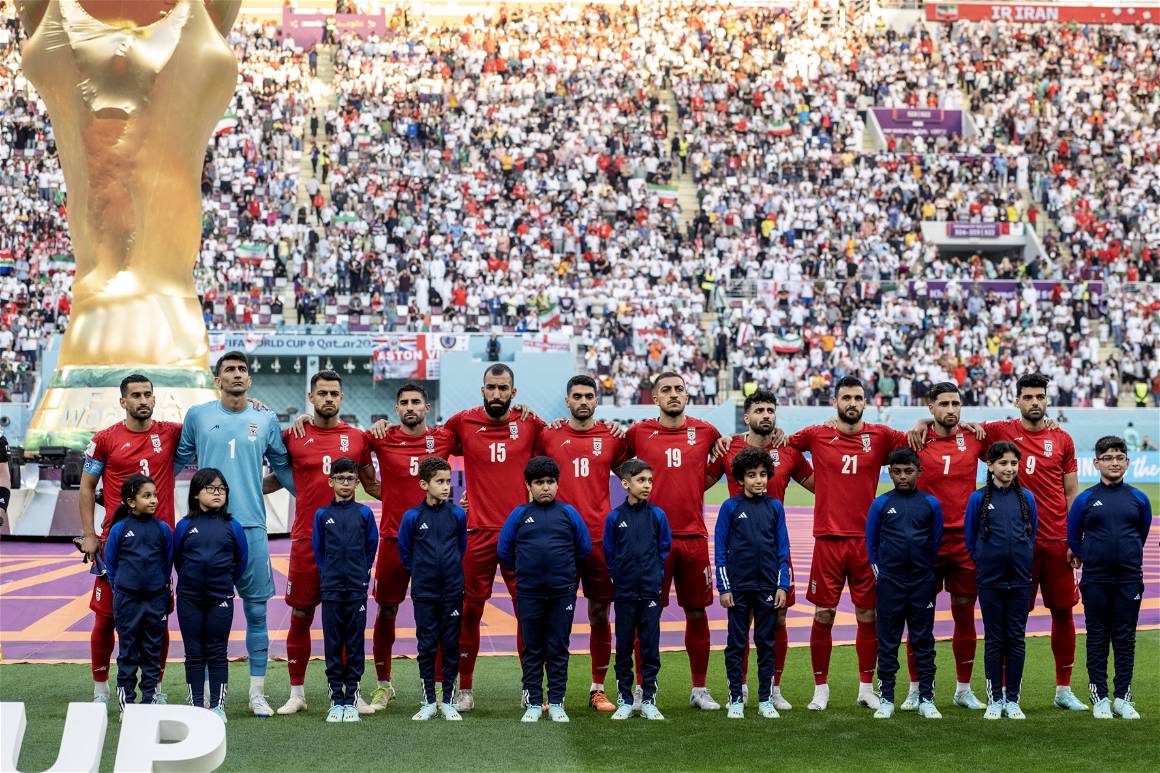
For some, an exit is only the beginning. In a stunning display of bravery and support with anti-government protests back home, Iran’s players stood motionless and silent as their national anthem blared out of the stadium speakers before their opening game against England. The anthem expresses its desire for the Islamic Republic to live forever.
The players were told by the Iranian Revolutionary Guard Corps that their families would face “arrest, violence and torture” back in Tehran if they failed to sing. Former Iran international Voria Ghafouri was arrested on the grounds of having “tarnished the reputation of the national team and spread propaganda against the state” for sticking up for the squad. Visibly uncomfortable, the team sang the anthem against Wales and the USA. Coach Carlos Queiroz was rock-solid in supporting his squad, stating Team Melli “did it for them” – referencing the protestors – after a 2-0 win against Wales. Try telling Iran that their story doesn’t matter.
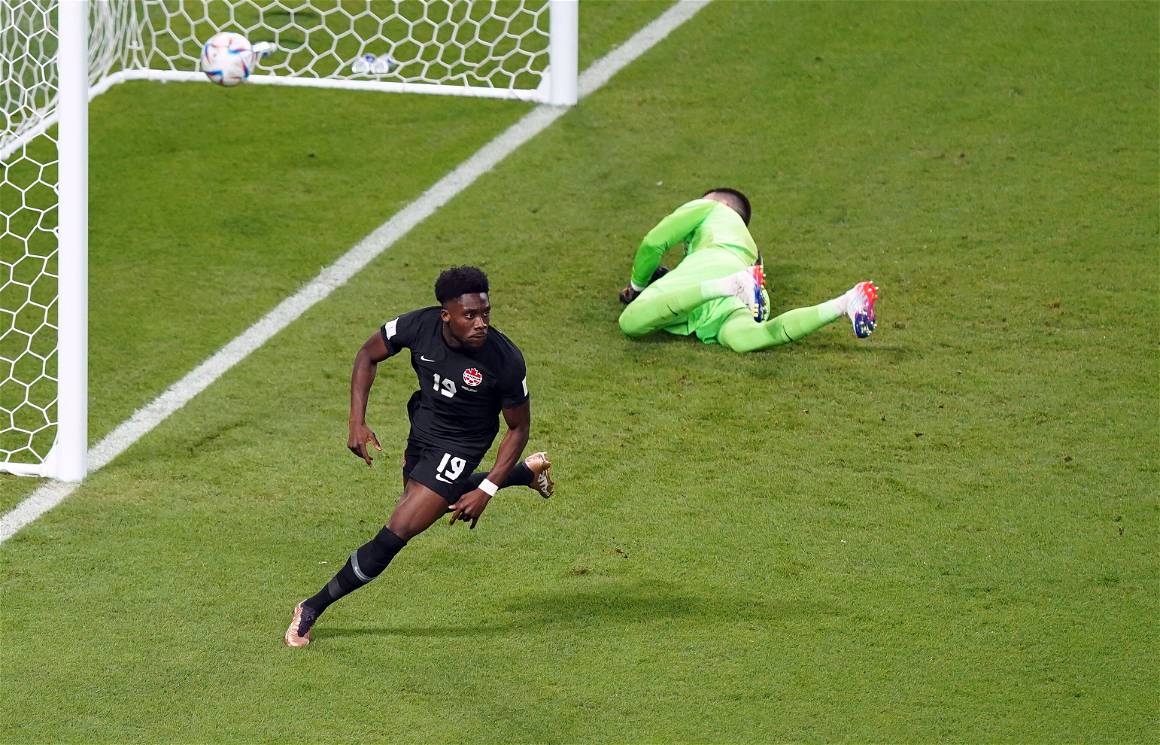
Underdog stories are what make World Cups so special. Canada’s brilliant Bayern Munich winger Alphonso Davies was born in a Ghanaian refugee camp as his parents fled the Second Liberian Civil War, the family eventually settling in Edmonton. Australia’s Awer Mabil lived in a refugee camp in Kenya until he was 10 as his parents fled South Sudan. Yet here they were, on the world’s biggest stage, proving where talent and a ceaseless work ethic can take you. They earned their platform to speak. “It is very important to get rid of the stigma around refugees,” said Davies. “As a footballer, I have encountered racism not too long ago. We are all human beings no matter where you come from.”
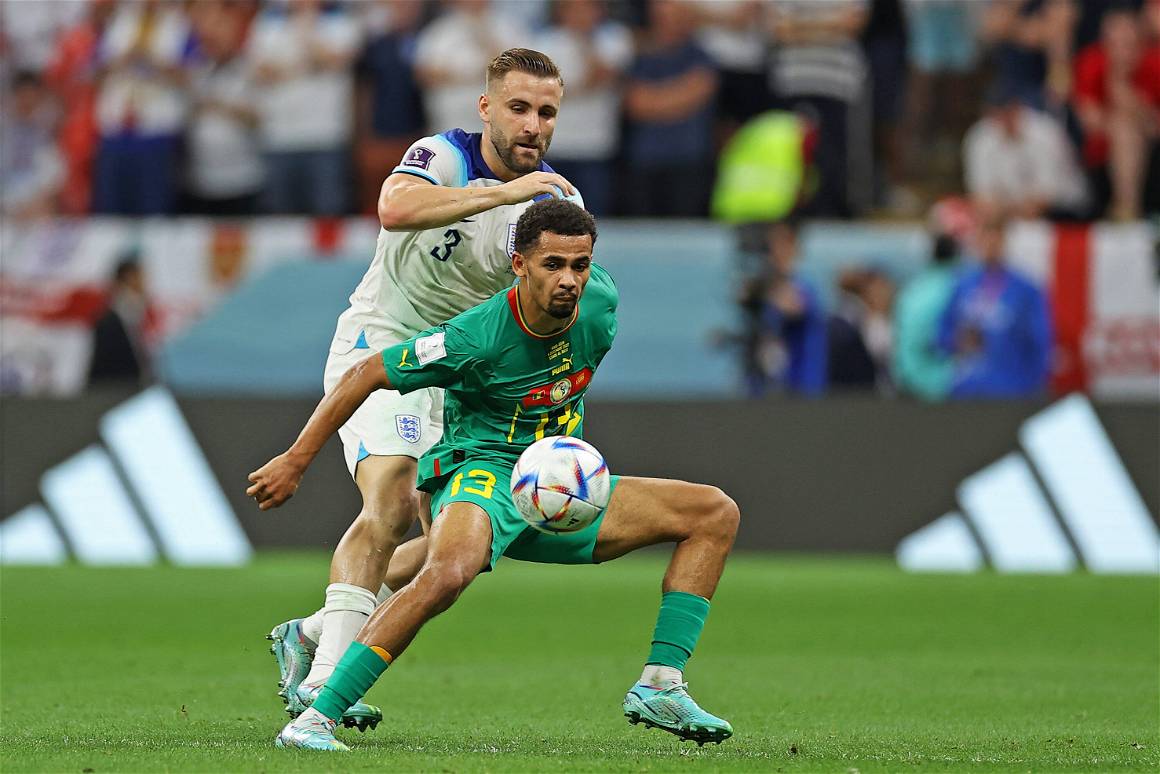
There were more. Iliman Ndiaye was playing amateur football for Sunday League side Rising Ballers in south London as recently as 2019 – three years later he was starting for Senegal in the last 16 of the World Cup against England, having earned a deal at second-tier Sheffield United. At the last World Cup, Ndiaye’s future international goalkeeper Seny Dieng was playing in England’s sixth tier for Hampton & Richmond Borough.
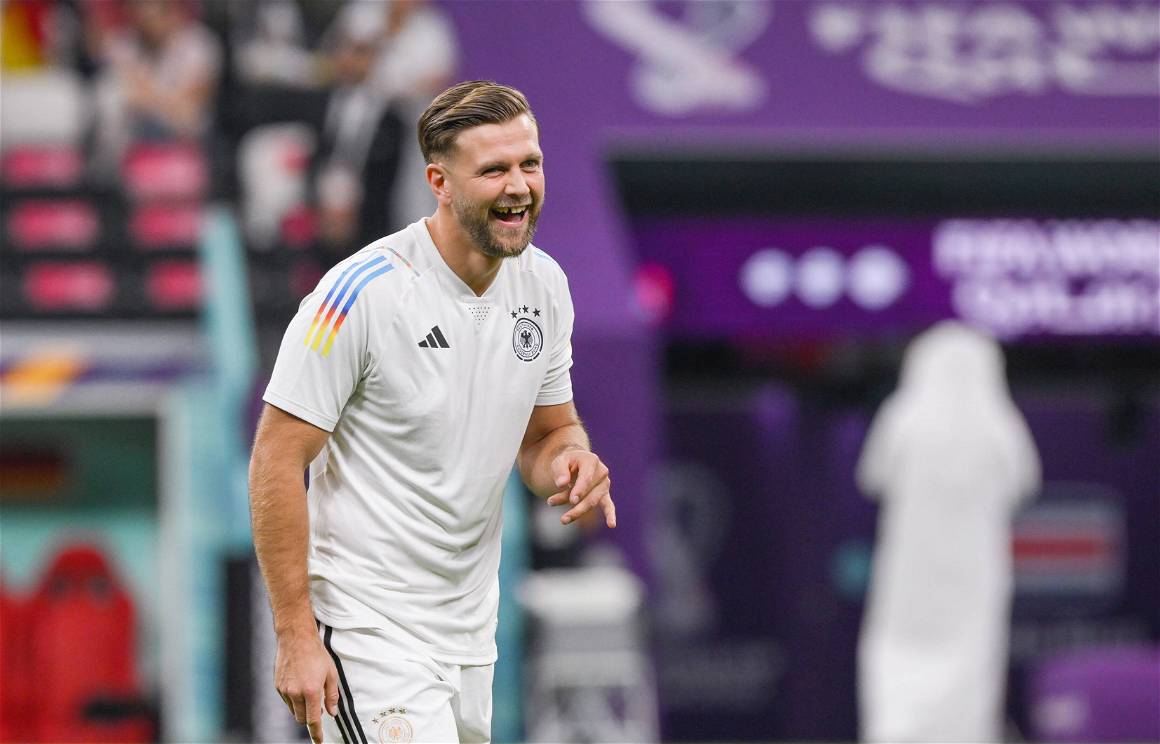
A battering ram centre-forward who had spent much of his career in the second tier prior to a first Germany call-up for the World Cup, Niclas Fullkrung was more famous for the gap in his teeth than his on-field exploits before scoring off the bench against Spain and Costa Rica. The unheralded 29-year-old’s nickname Lücke (Gap) and effective brutalism charmed millions of fans of the everyman. The Netherlands’ first-choice keeper at this tournament Andreas Noppert was begged by his family to give up on his football dreams as recently as two years ago and earn a steadier career as a policeman. He’s now a World Cup quarter-finalist.
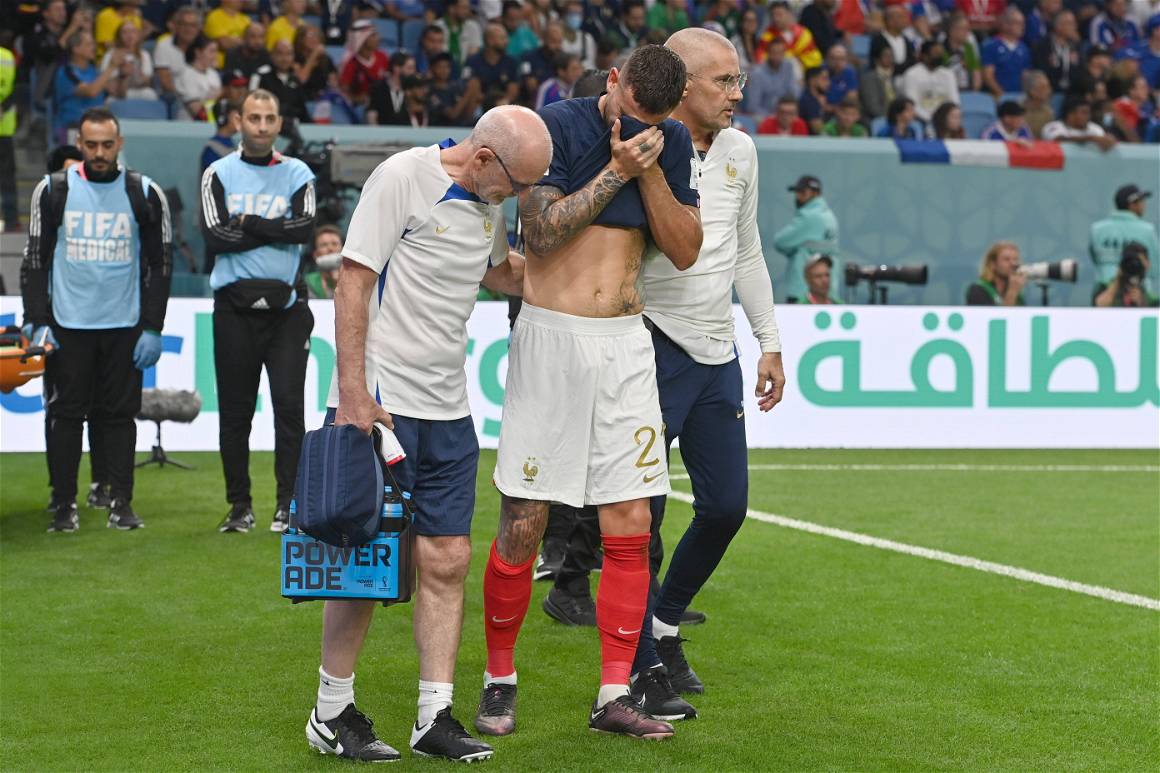
Families, in general, have been a central theme in Qatar. Lucas Hernandez replaced his stricken brother Theo – visibly in tears after a serious knee injury – six minutes into France’s opening fixture against Australia and has been the first-choice left-back ever since. Iñaki and Nico Williams became the first brothers born to the same parents – Jerome and Kevin-Prince Boateng had the same father but different mothers in 2010 and 2014 – to play for different countries at the same World Cup. Both were born in Bilbao, Spain; elder sibling Iñaki chose to represent his parents’ country Ghana, while Nico made three substitute appearances for the country of his birth. Alongside the younger Williams brother in the Spain squad was Ferran Torres, whose girlfriend Sira Martinez is the daughter of head coach Luis Enrique. Asked who the first name on his team sheet is, Enrique laughed pre-tournament: “That’s very easy: it’s Mr. Ferran Torres. Otherwise, my daughter will come after me and chop off my head.”
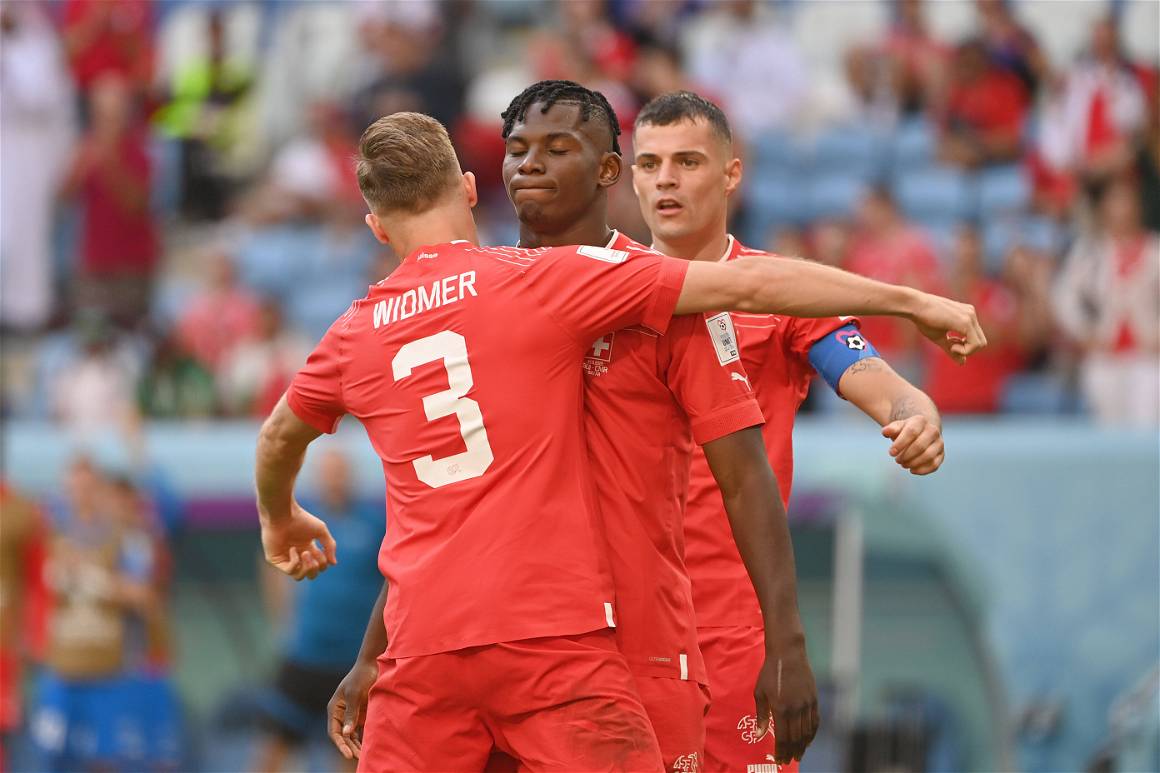
The notion of nationality has also been featured. Switzerland forward Breel Embolo didn’t celebrate scoring the only goal against Cameroon in the Nati’s opening game of the tournament out of respect for the country of his birth in a genuinely emotional moment of strained feelings. In particular, the Swiss, Xherdan Shaqiri and Granit Xhaka, didn’t find as much understanding from Serbia in their winner-take-all final Group G game. The duo are of Kosovan-Albanian extraction – the former not recognised by Serbia as a nation state despite its 2008 independence – and were subject to a torrent of (occasionally racist) abuse from opposition players and fans having stood up for their homeland. After an end-to-end first half that more closely resembled a basketball match than a game of football, Switzerland emerged victorious, but not before Xhaka grabbed his crotch in celebration at the Serbian bench, then got into a fight with Vanja Milinkovic-Savic near full-time.
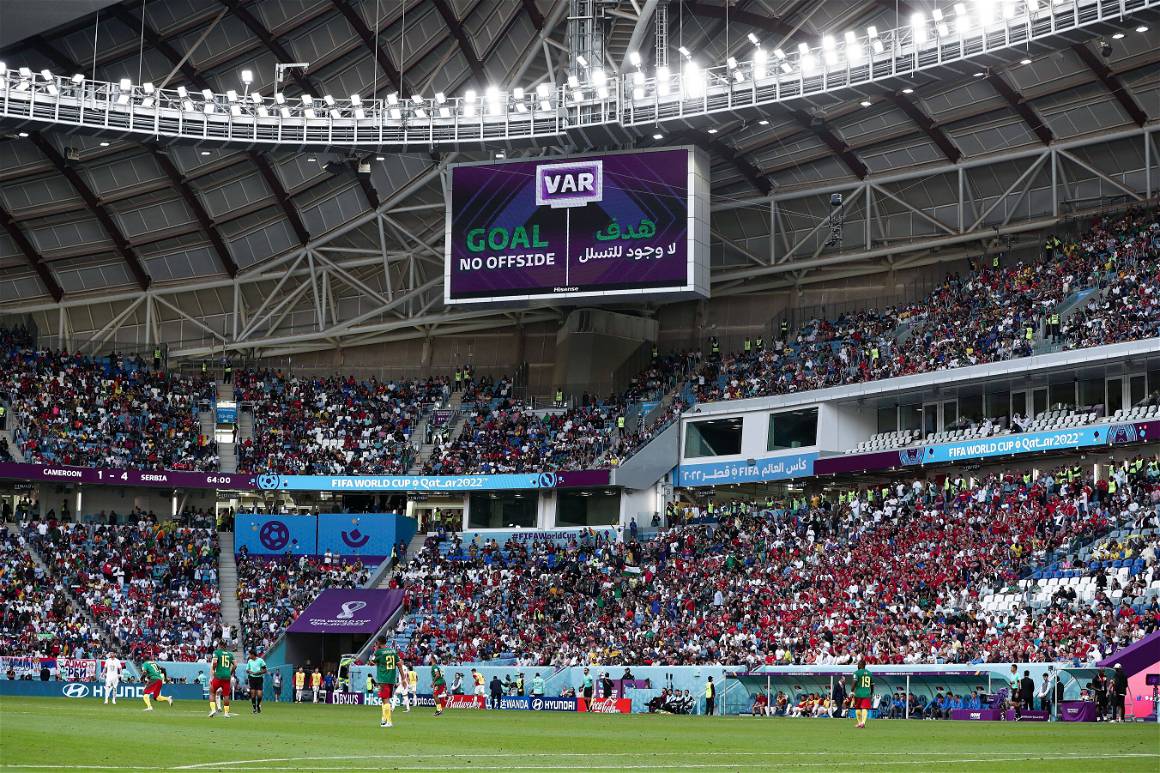
Whisper it, but even the much-criticised VAR actually had a decent tournament. Cameroon’s thrilling comeback to draw 3-3 with Serbia after going 3-1 down wouldn’t have been possible without an offside call so close; even Vincent Aboubakar thought he was beyond the last man when sprinting through on goal. The Indomitable Lions’ centre-forward glorious croissant scoop was the mark of a man who thought ‘sod it, I’m offside’ only to discover his impudence would be rewarded. A similarly tight call, this time to determine whether the ball had crossed the byline to allow Japan a memorable group stage victory over Spain that also knocked out Germany, brought all manner of conspiracy theories from frothing pundits who are yet to fully understand the concept of perspective and spherical objects such as footballs. Just to be clear, no the ball wasn’t out of play even if it looked like it, and yes Ao Tanaka’s winner correctly stood.
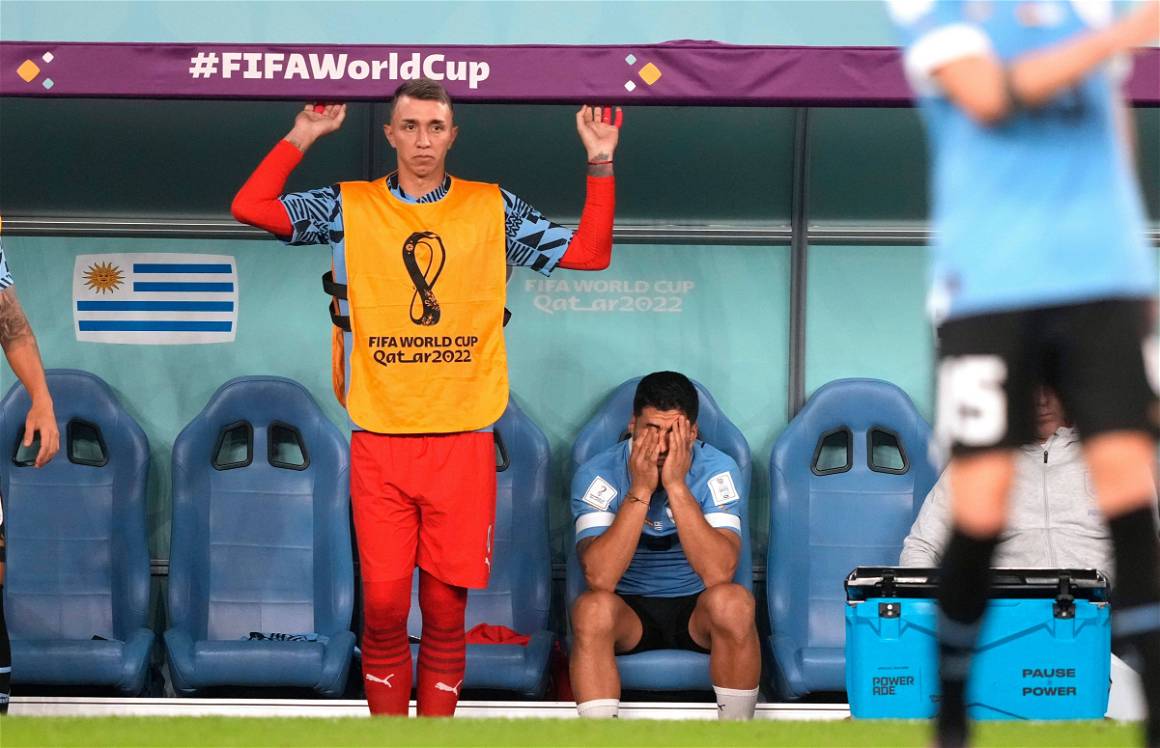
The World Cup also saw the return of one of the biggest rivalries in international football – Luis Suarez vs the whole of Ghana. In the 2010 quarter-finals, the Uruguay forward channelled his inner volleyball player to intentionally stop a goal-bound shot with both hands. When Asamoah Gyan missed the ensuing penalty, the red-carded Suarez gleefully ran down the tunnel punching the air. Told he was “the devil himself” by a Ghanaian news reporter before their revenge mission 12 years later, Suarez doubled down, huffing “I’m not sorry, they missed the penalty, not me”. Inevitably, Ghana won a penalty and, even more inevitably, again failed to score.
When Suarez laid on two assists, it seemed Uruguay would go through, only for South Korea to do the unthinkable and come back against Portugal with five minutes to go in Group H’s other match. Uruguay needed another, but Suarez had already been substituted and went through all five stages of grief on the touchline as he came to terms with his World Cup exit by bawling his eyes out, unable to do anything. Ghana luxuriated in those salty tears, the revenge best served ice-cold.
This was the last act of the best group stage in World Cup history, one full of drama, incident and the first time since 1994 that no team won each of their first three games. And yet, FIFA want to mess with it. In four years, the first 48-team World Cup means four groups of four no longer works. Good luck trying to find a system that works this well.
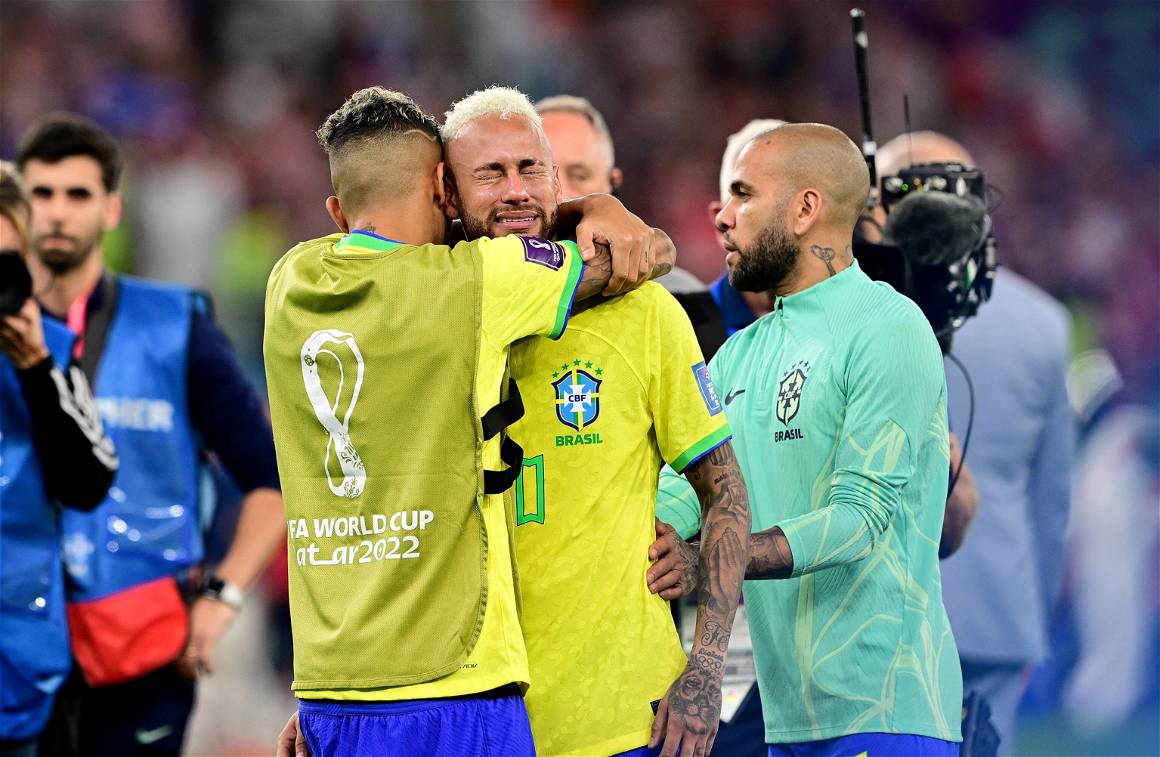
Joy has been everywhere this World Cup. Ally McCoist and Jon Champion’s bromance on commentary for ITV viewers in the United Kingdom was another episode in their magnificent travelogue. The former Rangers striker was revealed to have lost his temporary Qatar mobile phone within two hours of receiving it, too much hilarity. The pair commentate about football in the way Brazil play the beautiful game. Sure, O Canarinho fell to Croatia in the last eight, but the sumptuous football Tite’s vibrant side put together is the physical representation of why football captivates like no other sport – think Richarlison’s spectacular scissor volley against Serbia or Neymar’s intricate goal in shootout defeat to Croatia. Unless you’re Brazilian – in which case, it matters really quite a lot – it doesn’t matter that they didn’t win a sixth world crown. They were the best team by a distance – like fellow brilliant non-winners Hungary in 1954, Holland in 1974 and Brazil in 1982 their fans were the most colourful and joyous. This is football how it used to be decades ago – fun, with a frisson of samba flair.
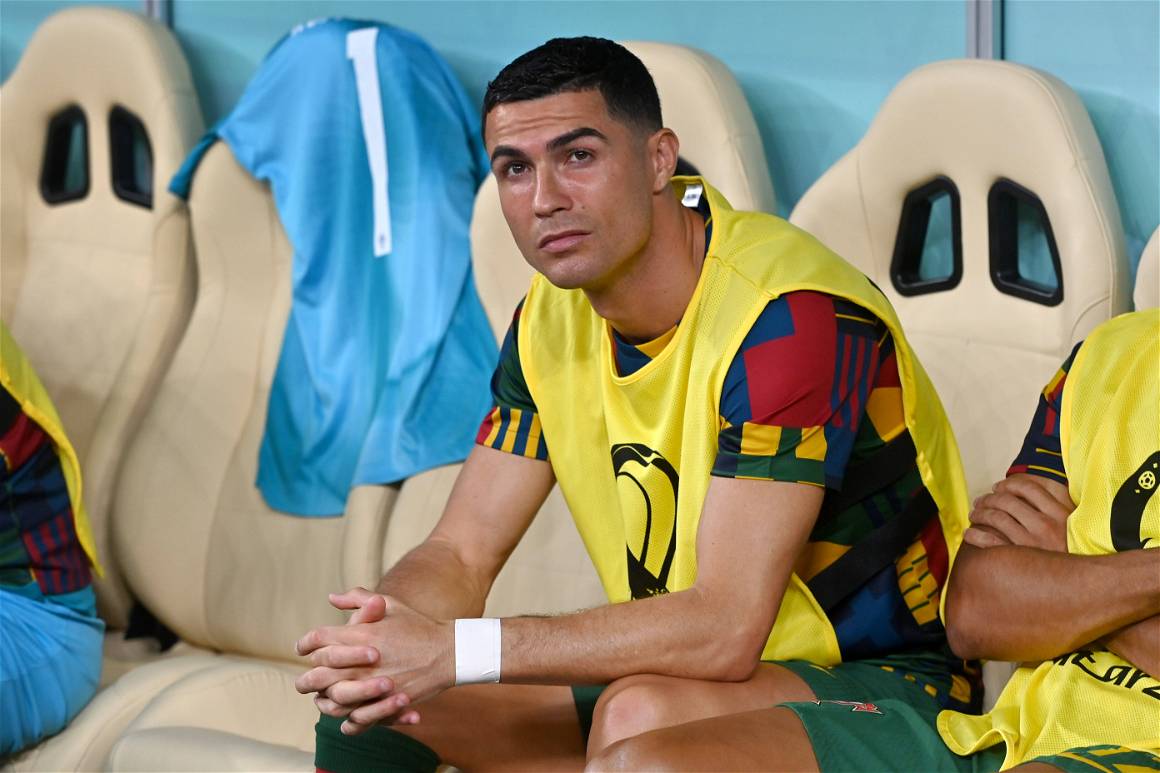
Portugal were also beaten quarter-finalists, meaning the end of the World Cup road for Cristiano Ronaldo. He can now concentrate on being best friends with notorious British blowhard Piers Morgan after becoming the first man to score at five different World Cups. Like a footballing King Canute, CR7 is struggling to hold back the tide of his impending retirement, his increasing displays of petulance at being dropped for first Manchester United, then Portugal, indicative of an ego unable to accept reality. If his replacement Goncalo Ramos’ last 16 hat-trick against Switzerland is anything to go by, Portugal will do just fine without him.
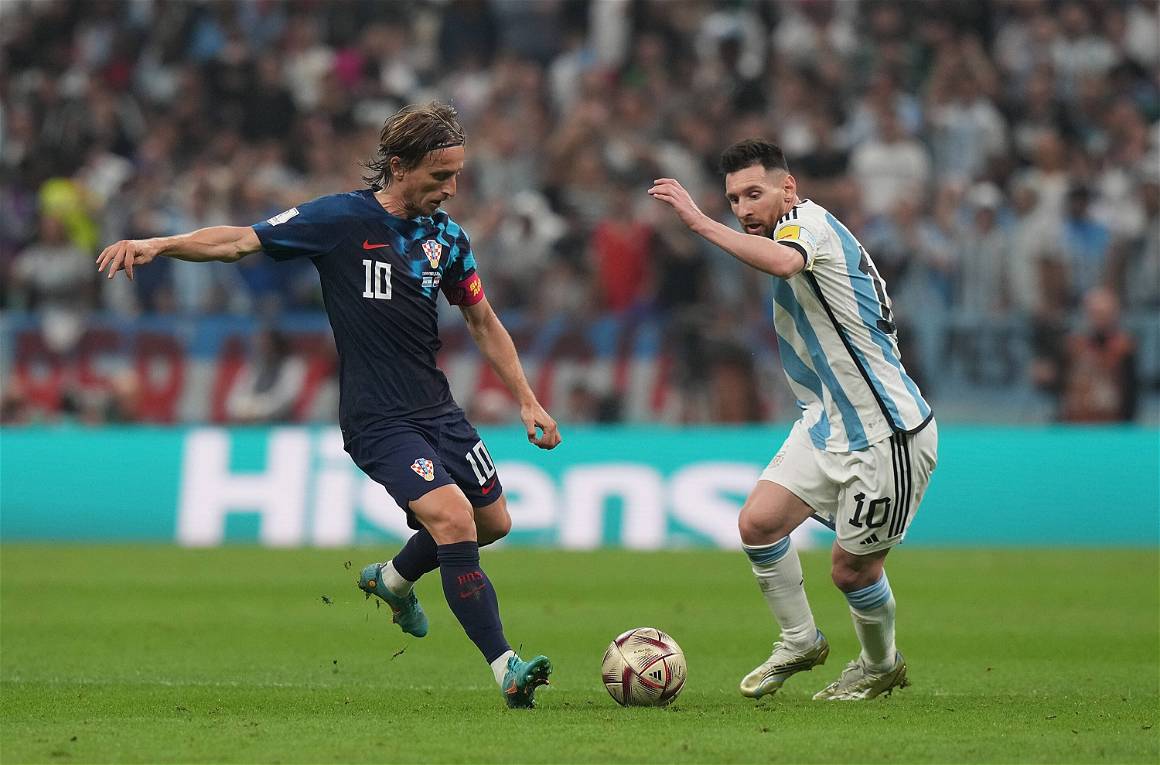
Croatia embody the collective in a way Ronaldo never could. Runners-up in Russia four years ago, the Balkan country’s refusal to acquiesce to defeat and ability to bat well above their average is stunning. They reached the semi-final with Argentina having led for just 45 minutes all tournament, thanks to a preternatural ability to find injustice in the mundane. When Canada coach John Herdman, caught momentarily off-guard in a post-game interview, said he’d motivate his underdog team with the message “we’re going to eff Croatia”, all hell broke loose in the Balkans. Croatia paper 24 Sata mocked up a naked Herdman, with nothing but a maple leaf to hide his modesty, on the front page with the headline: “you have the mouth, but do you have the balls?” Though Canada went 1-0 up, Croatia roared back to win 4-1. “I want to thank the Canada coach for the motivation. In the end, Croatia demonstrated who effed whom,” said striker Andrej Kramaric at full time. With Luka Modric only the second 37-year-old World Cup semi-finalist in history, the last four encounters with Argentina proved a step too far after two emotional penalty shootouts against Japan and Brazil.
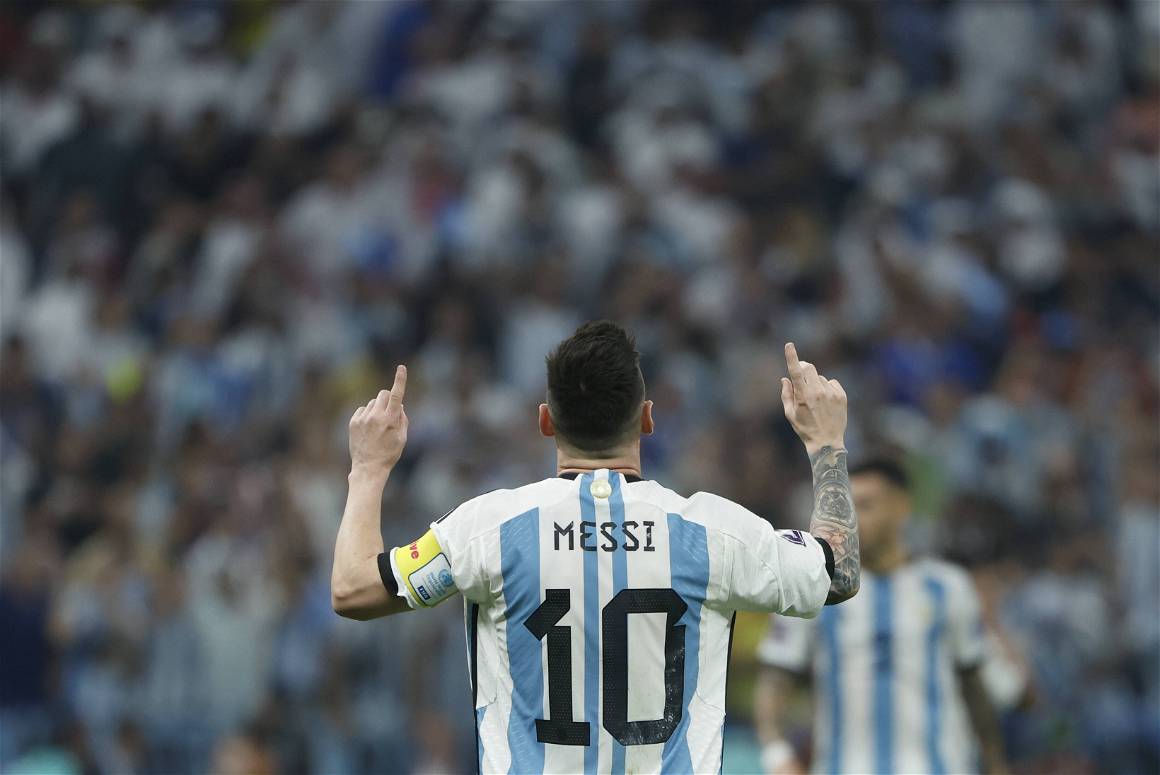
The Argentina story is hardly untold but merits an update. The reigning Copa America champions came into this tournament on a record 36-game unbeaten streak but unfathomably lost their opening game 2-1 to Saudi Arabia – ranked outside the world’s top 50 – in arguably the most incredible upset ever at a World Cup. At his last World Cup, the great Lionel Messi dragged his side kicking and screaming into the final, with five goals and three assists. The explosion of joy from the 40,000 Argentina fans who have travelled to the Middle East when Messi opened the scoring in a nervy defeat of Mexico reignited the relationship between team and support.
The ska-pop song Muchachos, ahora nos volvimo’ a ilusionar – Lads, you’ve made us hope again –by Argentine nine-piece band La Mosca has become the tournament’s unofficial anthem, sung by fans in the stands and players on the pitch. The sight of Messi, so often weighed down by the pressure of echoing the singular genius of Diego Maradona in 1986, smiling and enjoying every moment within a functional team set up to deliver him the ball for special moments, is a joy to behold. It would be a fitting denouement to perhaps the greatest player ever’s career if he finally wins the trophy he has always coveted most.
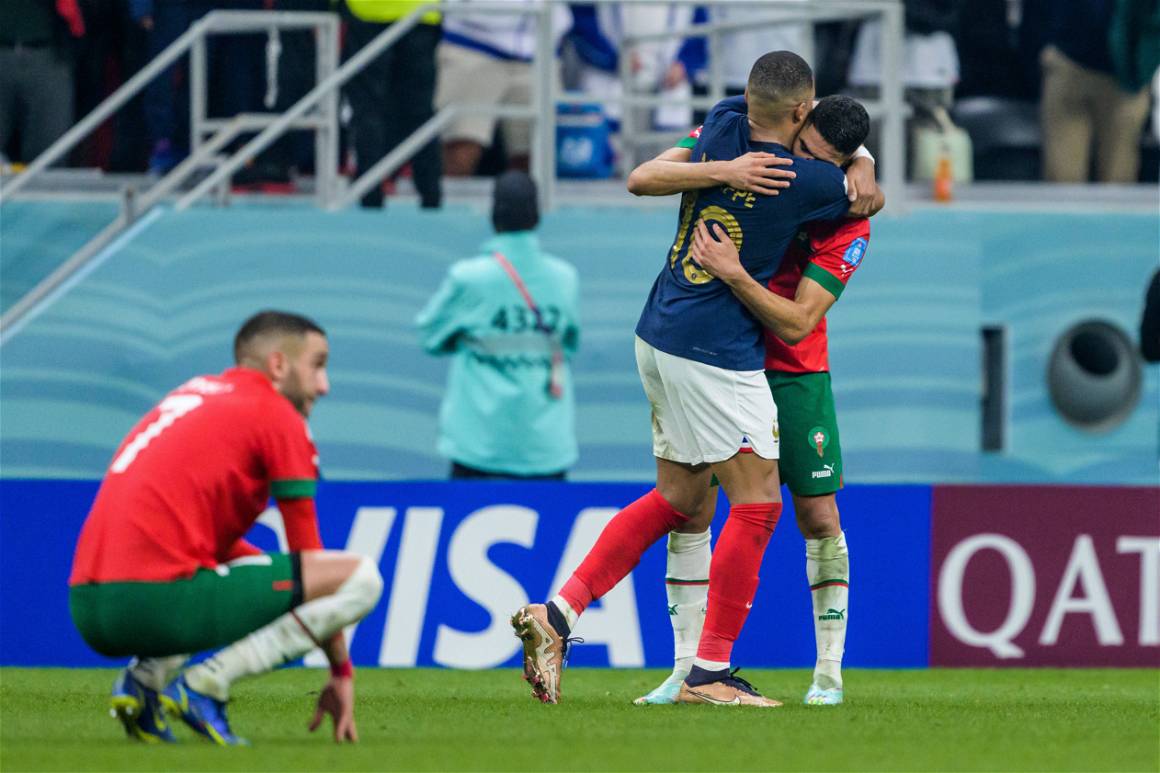
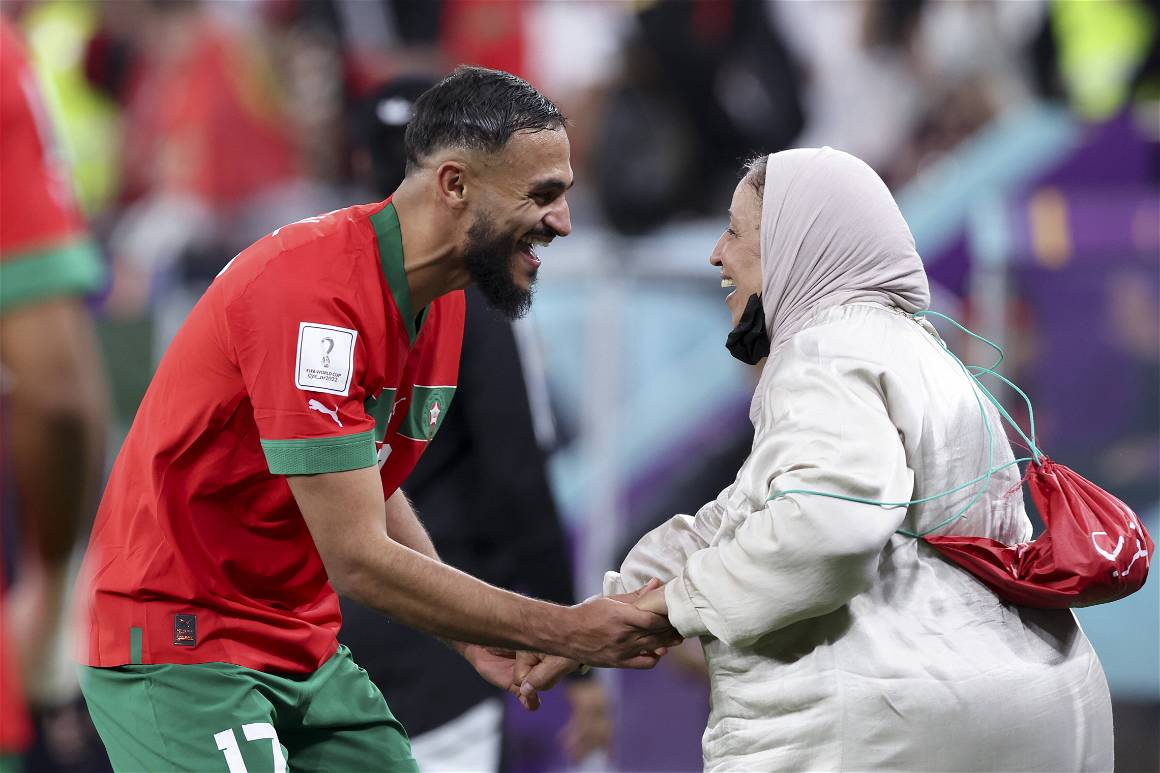
Morocco have been the only team to rival Argentina for their febrile fanbase. It’s facile to claim the World Cup’s first African semi-finalists are doing this for the entire continent, but it is true that the pride felt in the Maghreb countries to the north have adopted the Atlas Lions and stayed out in Qatar to cheer them as their own. Coach Walid Regragui has only been in charge since September, replacing Vahid Halilhodzic who had fallen out with star players Hakim Ziyech and Noussair Mazraoui, and has knitted together a squad with calm elan.
Before the Belgium game in Group F, first-choice goalkeeper Bono was taken dizzy during the national anthems and couldn’t continue. Without missing a beat, Regragui called over reserve stopper Munir, gave him a positive pep talk and made the change. It took all of a minute. Clean, decisive and clear. Morocco won 2-0 against the side ranked second in the world at the time. Regragui’s side reached the last four, having conceded just once in five games, and even that was an own goal in a 2-1 defeat of Canada. Right-back Achraf Hakimi – a breakout star of the tournament – and Sofiane Amrabat have each danced on the pitch at full-time with their mothers to celebrate victories against Spain and Portugal respectively. Hakimi’s celebrations were especially poignant – born in Madrid, he chose to play for his parents’ country because of the proud upbringing he’d experienced. A semi-final against France dripping geopolitical history and intrigue the sort of which only the World Cup can deliver meant an exit. Morocco was a French protectorate from 1912 to 1956 – for the Atlas Lions to face their one-time masters meant more – but they should be proud of their efforts.
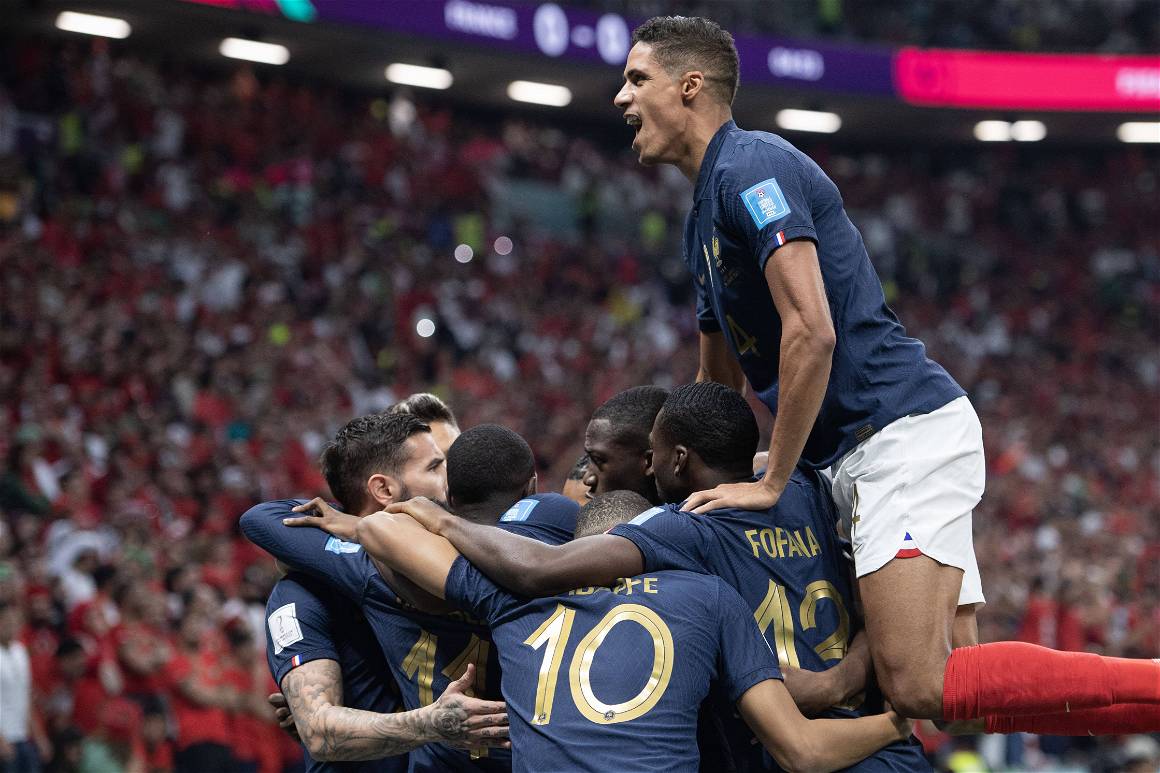
France is now one game from becoming the first team since Brazil in 1962 to defend the World Cup, their manager Didier Deschamps the second manager after Vittorio Pozzo for Italy in 1938 to two world crowns. Kylian Mbappe’s five tournament goals have been a study in fizzing brio, while evergreen forward Olivier Giroud is now his country’s all-time leading goalscorer. In the semi-final defeat of Morocco, Randal Kolo Muani’s goal off the bench was the quickest by a substitute (16 seconds) in tournament history.
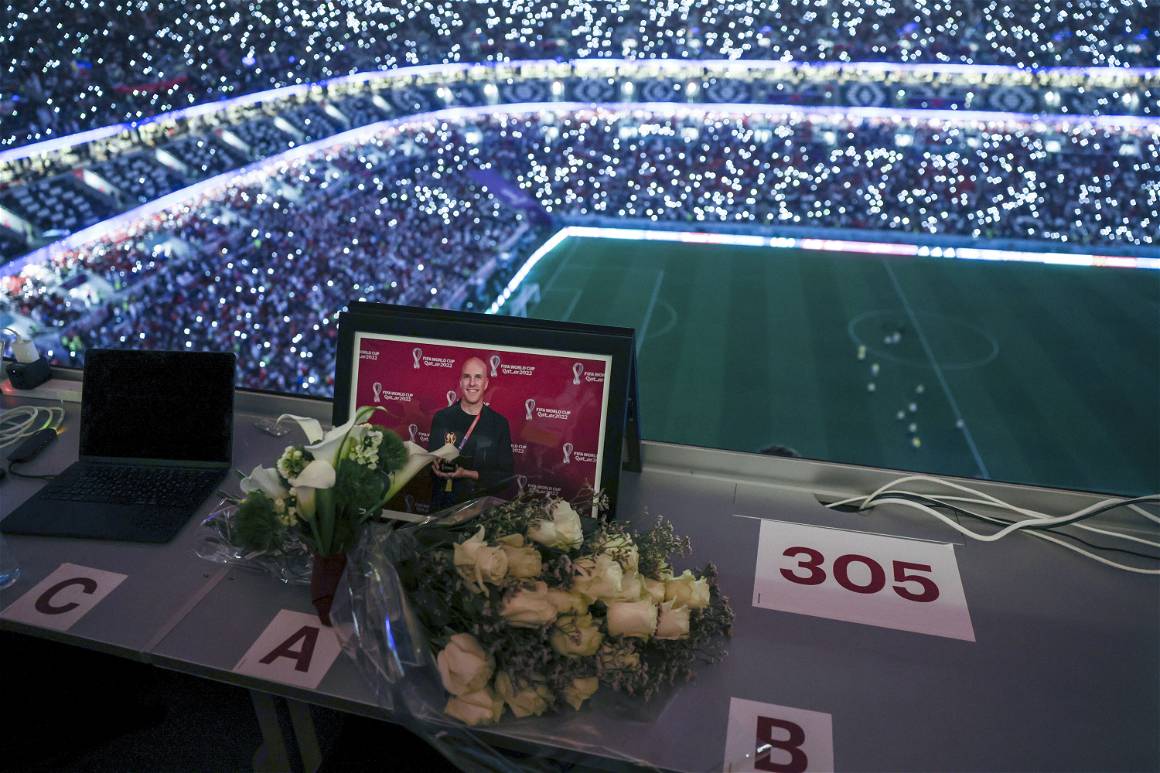
Les Blues’ final against Argentina will be a fitting end to an incredible tournament on the pitch, yet not even the showpiece event can lay claim to my best moment. Left behind in Qatar are voiceless LGBTQ+ and migrant worker communities who cannot speak up for fear of recrimination about the human rights abuses they face when the cameras have gone. Thanks to journalists such as Grant Wahl, people have been vociferous and constant in standing up for basic human rights and making those voices heard. Grant’s death during the Netherlands vs Argentina quarter-final is a tragedy not only for the sport, but the marginalised communities worldwide he has long stood up for, and he will be sorely missed.
Like Grant, Germany stood up. England, the Netherlands, Belgium, Denmark, Switzerland, Wales and the Germans said their captains would wear the One Love armband to stand up for gay rights in Qatar, right up until the point they were told said skipper would start the game with a yellow card. All caved, bar Germany. Before their opening Group E fixture against Japan, the starting XI used their pre-game group picture to place their hands over their mouths in response to their being silenced. It didn’t matter that they lost a game they’d be expected to win, it mattered that they stood up and produced the most powerful, evocative statement of the unifying force that football can be. They may have gone out in the group stage, but that’s the kind of win that only the bravest dare to seek.
Braver, perhaps, even than whoever wins Sunday’s final. France vs Argentina, Mbappe vs Messi – immortality awaits.
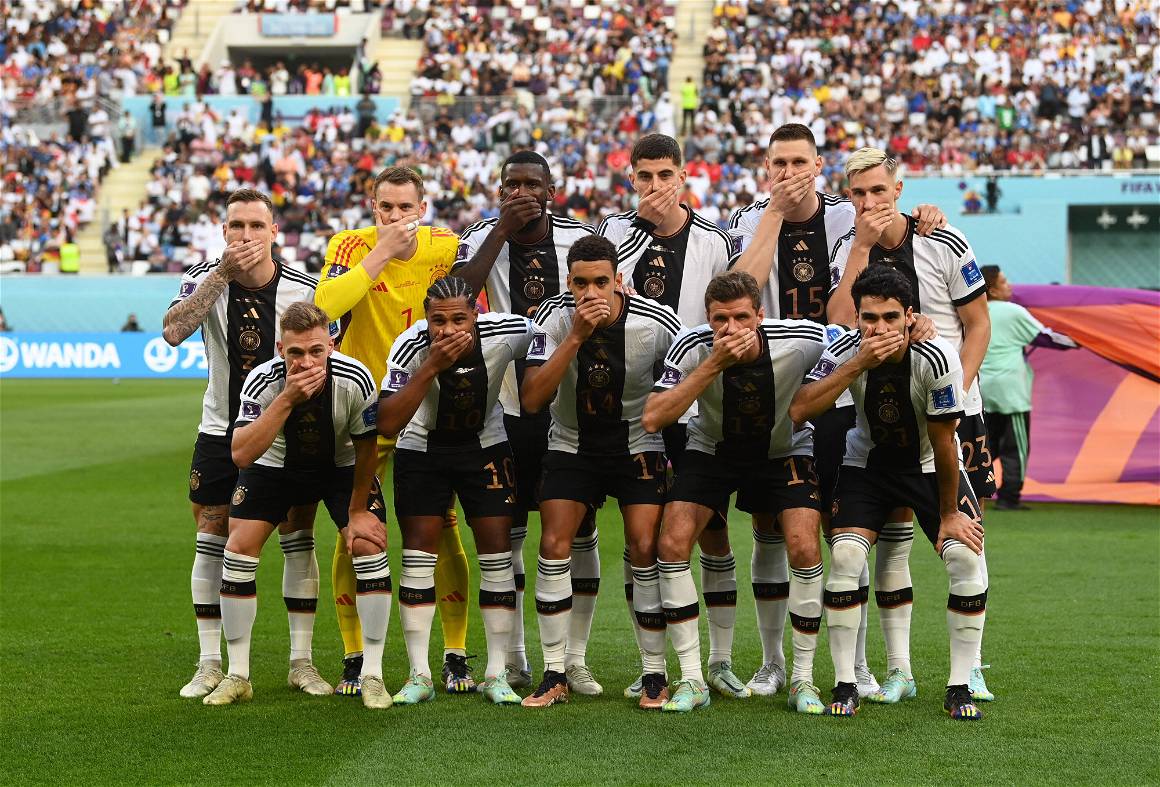
More articles of Andy Murray:
How does men’s football in the UK learn from 30 years of silence?
Federer out, Alcaraz in – can tennis’ new star fill the shoes left by the departing king?
The agony and ecstasys of the football league play-offs.


